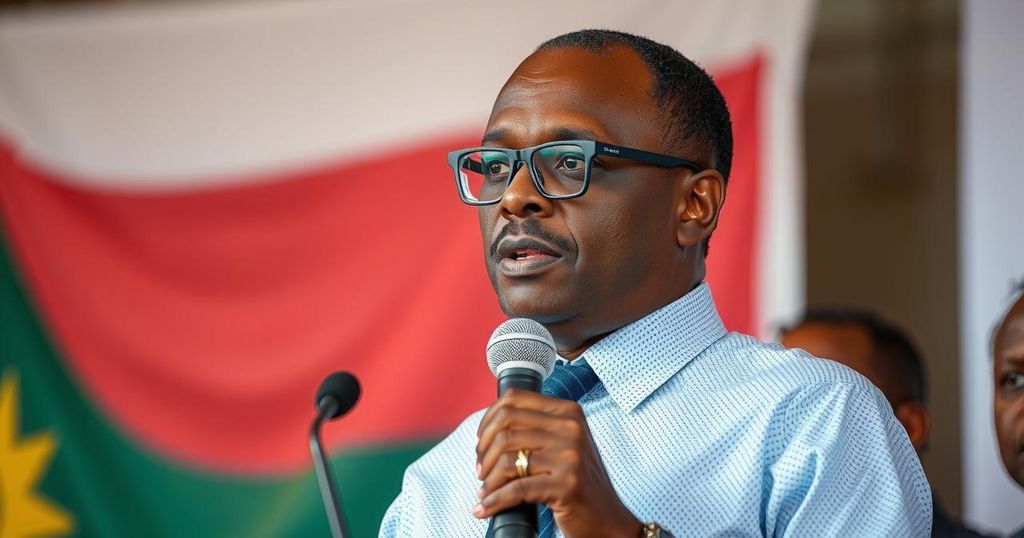Netumbo Nandi-Ndaitwah, Namibia’s President-elect, denies allegations of Zimbabwean interference in the recent elections, made by opposition parties lacking evidence. Logistic issues, including ballot shortages, marred the electoral process, leading to concerns about its legitimacy. Both Zanu-PF and Swapo officials reject claims of wrongdoing, emphasizing the unfounded nature of the accusations.
Namibia’s President-elect Netumbo Nandi-Ndaitwah has categorically denied allegations of interference by Zimbabwe in Namibia’s recent presidential and National Assembly elections, which witnessed a victory for the ruling Swapo party. These claims were made by several opposition parties, including the Independent Patriots for Change (IPC) and the Landless People’s Movement (LPM), who posited that the Zanu-PF party of Zimbabwe influenced the electoral results. Notably, the opposition groups did not provide substantial evidence to support their assertions but expressed concern over Zimbabwe’s involvement.
LPM’s leader, Ivan Skrywer, drew comparisons between the shortage of ballot papers seen during Namibia’s elections and similar allegations against Zanu-PF’s past conduct in Zimbabwe. According to Skrywer, this tactic was evident in Zimbabwe’s previous elections, damaging Namibia’s electoral integrity. IPC spokesperson Imms Nashinge raised further doubts about Swapo’s victory by referencing a social media post from a Zimbabwean official, questioning how Zimbabwe could have foreseen Namibia’s electoral outcome.
President-elect Nandi-Ndaitwah dismissed these claims as unfounded conspiracy theories aimed at undermining Swapo’s legitimacy. During her address in Windhoek, she called upon investigative journalists to scrutinize the allegations rigorously, asserting that those levelling these charges are deliberately misleading the public.
The recent elections in Namibia were marred by logistical issues, such as ballot shortages and technical failures, leading to extended voting times and diminished voter turnout, notably in the Khomas region. Critics have criticized the Electoral Commission’s organization, particularly questioning the legality of the decision to extend the voting period. Nevertheless, officials from both Zanu-PF and Swapo have denied any involvement in electoral manipulation, with Zanu-PF’s secretary-general Obert Mpofu labeling the allegations as reflective of “primitive thinking.”
The recent presidential and National Assembly elections in Namibia have been tinged with controversy, particularly following allegations of foreign interference by Zimbabwe. This situation has drawn attention to the integrity of Namibia’s electoral process and raised questions regarding logistical shortcomings during the elections. The claims from opposition parties suggest a breach of Namibia’s sovereignty, reminding the public of the historical complexities between bilateral relations and electoral politics in Southern Africa.
In summary, the allegations of Zimbabwean interference in Namibia’s elections have been strongly refuted by President-elect Nandi-Ndaitwah, who labeled them as baseless. The opposition’s concerns point to significant logistical failures within the electoral process, raising questions about the legitimacy of the elections. Despite these controversies, both Zimbabwe and Swapo have denied any wrongdoing, highlighting ongoing tensions surrounding electoral integrity in the region.
Original Source: newscentral.africa






